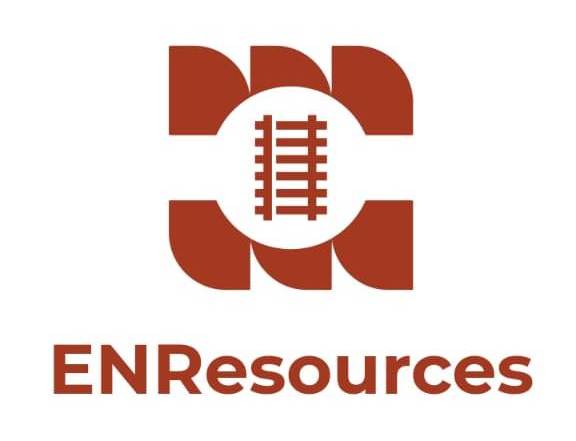Introduction
Postgraduate dissertations are an important part of the academic journey for international students studying in the UK. Writing a good dissertation can be a daunting task, especially for students who are unfamiliar with the process. This guide provides an overview of the steps required to write a good dissertation, from choosing a topic to submitting the final draft.
Step 1: Choose Your Topic
The initial step in embarking upon a postgraduate dissertation involves the crucial task of topic selection. Opting for a subject that captivates your interest, while ensuring ample availability of research materials for exploration, is considered the most effective approach. It is vital to narrow down the chosen topic to a specific and manageable area of study. This ensures a focused and in-depth analysis within the dissertation. Following the identification of the topic, it is imperative to engage in comprehensive research to ascertain its suitability for a postgraduate dissertation. A thorough investigation allows for an evaluation of the existing literature, identifying potential gaps or avenues for further exploration. This process also aids in framing research questions and objectives and establishing a solid theoretical foundation. By dedicating sufficient time and effort to topic selection and thorough research, the foundation for a successful postgraduate dissertation is firmly laid, setting the stage for meaningful contributions within the chosen field of study.
Step 2: Create a Research Plan
Once you have chosen your topic, the next step is to create a thorough research plan. This plan plays a crucial role in guiding your dissertation journey. A well-constructed research plan encompasses various elements that contribute to the overall effectiveness and efficiency of your research. Firstly, you need to determine the sources you will utilize. These sources can include academic journals, books, credible websites, interviews, or surveys. Consider both primary and secondary sources to ensure a comprehensive approach to your topic. Next, outline the methodology you plan to employ. Will you conduct experiments, analyze existing data, or use a combination of qualitative and quantitative approaches? Clarifying this early on will help you structure your research appropriately.
Additionally, it is essential to establish a realistic timeline for completing your dissertation. Break down the different stages of research, such as literature review, data collection, analysis, and writing, into specific timeframes. This will help you stay organized and meet your deadlines effectively. Remember, the more detailed and comprehensive your research plan is, the more focused and productive your dissertation journey will be.
Step 3: Gather Your Sources
Once you have developed a well-defined research plan, the next crucial step is to collect an extensive array of sources. These sources encompass various materials such as books, scholarly articles, reports, academic journals, reputable websites, and other relevant publications that will serve to substantiate and strengthen your research endeavor. The utilization of reliable and up-to-date sources is of utmost importance, as it guarantees the accuracy, credibility, and validity of your research findings. Reliable sources can offer comprehensive and well-researched information that has undergone rigorous scrutiny and evaluation. Moreover, using up-to-date sources ensures that your research remains current and reflects the most recent advancements and insights in the field. By judiciously selecting and incorporating a diverse range of trustworthy and current sources, you can fortify the foundation of your research, enhance its overall quality, and increase its impact and significance.
Step 4: Organize Your Data
Once you have gathered your sources, the next crucial step is to efficiently organize your data. Organizing your research materials ensures that you can effectively access and utilize the information you need during the dissertation writing process. To achieve this, creating an outline serves as a valuable tool. An outline provides a structure and framework for your dissertation, enabling you to map out the main ideas, arguments, and supporting evidence. Additionally, organizing your notes, quotes, and other research materials is essential. This can be accomplished by categorizing them based on relevant topics or themes, using a digital or physical filing system. By keeping your research materials organized, you save valuable time and effort that might otherwise be wasted searching for specific information. This systematic approach to data organization contributes to a smoother and more productive dissertation writing experience.
Step 5: Write Your Dissertation
Once you have gathered and organized your data, the next crucial step in the dissertation process is to write your dissertation itself. This comprehensive task involves several key sections, each serving a specific purpose. To begin, you should craft an engaging and informative introduction that sets the stage for your research, outlines your objectives, and provides an overview of your study. Following this, a literature review is essential to showcase your understanding of existing scholarship and establish the context for your research. A well-defined methodology section is crucial to explaining the methods and techniques employed in your study, ensuring transparency and replicability. Finally, a comprehensive discussion section allows you to interpret your findings, address research questions, and provide insightful conclusions. Throughout your dissertation, employing clear and concise language is vital to effectively communicating your ideas. Additionally, it is imperative to acknowledge and cite all of your sources appropriately to maintain academic integrity and provide evidence for your arguments.

Photo by Mimi Thian on Unsplash
Step 6: Edit and Proofread
Once you have completed the extensive task of writing your dissertation, the subsequent crucial step involves editing and proofreading it meticulously. This process entails carefully examining the document for errors in grammar, punctuation, and spelling, while simultaneously ensuring the clarity of your arguments and the accuracy of your cited sources. Dedicating ample time to the editing and proofreading stages is paramount to guaranteeing that your dissertation attains the highest level of quality.
Editing involves a comprehensive review of your work, focusing on the overall structure, coherence, and logical flow of your ideas. It requires fine-tuning your sentences, refining your language, and enhancing the overall readability. Furthermore, it entails scrutinizing your citations and references, ensuring that they conform to the required style guide and are correctly formatted. Proofreading, on the other hand, is a meticulous process of carefully scanning through your dissertation to identify and rectify any remaining errors or inconsistencies. This includes detecting and rectifying any remaining grammatical, punctuation, or spelling mistakes that may have been missed during the initial writing and editing stages. By meticulously editing and proofreading your dissertation, you demonstrate your commitment to producing a scholarly piece of work that is not only accurate and well-structured, but also showcases your academic prowess.
Step 7: Submit Your Dissertation
Once you have meticulously edited and painstakingly proofread your dissertation, the subsequent crucial phase entails submitting it to your esteemed university. This pivotal step necessitates your meticulous adherence to any explicit guidelines provided by your university and ensuring that your dissertation impeccably meets all of their stringent requirements. It is of paramount importance to peruse the submission guidelines with utmost care and attention, leaving no room for oversight or omission, as the acceptance of your dissertation hinges on this critical aspect. By thoroughly familiarizing yourself with the prescribed guidelines, you can ensure that every aspect of your work, ranging from formatting and citation styles to word count limitations and appendices, aligns perfectly with the university's expectations. Adopting a diligent and methodical approach during this phase is instrumental in securing a favorable outcome and affirms your commitment to academic excellence.

Photo by Tima Miroshnichenko on Pexels
The eBook “Dissertation Writing for International Students: Chapter by Chapter Guideline With Examples” provides you with all the information you need on how to maximize your dissertation writing project.
Most importantly, it provides you with insights on publishing and the commercialization of your dissertation research outcomes.
About the Author

Emmanuel has over 20 years of experience as a freelance research writer, project manager, and business development professional. He has a strong background in delivering high-quality research-based content across various industries. His writing style is versatile, allowing him to adapt to different subjects and formats, including academic papers, market research reports, and business proposals. You can find inspiring educational and career resources in areas like career readiness, dissertation writing, employability skills, global entrepreneurship, and much more on his blog site.
Citations
- Bryman, A. (2012). Social Research Methods. Oxford: Oxford University Press.
- Cooper, D. R. and Schindler, P. S. (2014). Business Research Methods. New York: McGraw-Hill.
- Mark Stephan Felix and Smith, I. (2019). A practical guide to dissertation and thesis writing. Newcastle Upon Tyne, England: Cambridge Scholars Publishing.
- Murray, R. (2016). How to write a thesis (3rd ed.). McGraw-Hill Education.
- Naoum, S.G. (2019). Dissertation Research and Writing for Built Environment Students. Routledge.
- Paltridge, B., & Starfield, S. (2013). Thesis and dissertation writing in a second language: A handbook for supervisors. Routledge.
- Swales, J. M., & Feak, C. B. (2011). Academic Writing for Graduate Students: Essential Tasks and Skills. University of Michigan Press.



